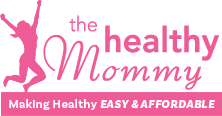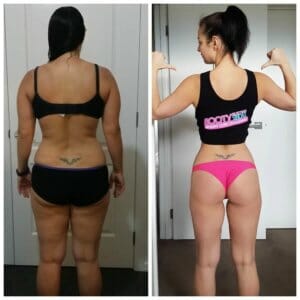Should you start your day by drinking coffee on an empty stomach?
For most of us tired moms the first thing we need to start the day is a cup of coffee before we can even think about breakfast!
But is it okay to drink coffee on an empty stomach? Here’s what experts have to say about it…
What happens when you drink coffee on an empty stomach
Most of us need coffee to help us function and give us an instant wake-me-up before the day has even begun.
The good news is, drinking coffee isn’t a bad thing. According to Healthline, drinking coffee first thing doesn’t just make you feel more alert, it can help improve your mood, aid weight loss and it may even help protect against diabetes, heart disease, certain types of cancers and Alzheimer’s.
Coffee contains a high level of antioxidants and caffeine also contains a fat-burning supplement which also boosts your metabolic rate by 3-11%.

Drinking coffee on an empty stomach could cause stress and stomach ulcers
What’s more, drinking coffee may also help protect against liver and colorectal cancer, as studies have shown that coffee drinkers have up to 40% lower risk of contracting these diseases.
However, drinking coffee on an empty stomach may actually cause some problems such as stress or causing more acid in your stomach, which can cause heartburn or lead to gastric ulcers developing.
So it seems the best way to start your day is with coffee AND food.
“Drinking coffee on an empty stomach, or early in the morning before you’ve had breakfast, can increase the level of cortisol in your body,” says Dr. Nikola Djordjevic, MD.
“From the moment you open your eyes in the morning, your body starts releasing cortisol, a hormone that’s responsible for regulating your immune response, metabolism, [and] stress response.”
It’s important not to overdo it though, as many people suffer from stomach upset, headaches or the shakes if they ingest too much caffeine.
If you’ve ever decided to go cold turkey and give up coffee, you’ll know how hard it can be. Withdrawals include feelings of nausea, crankiness, headaches, tiredness and general irritability.
This is because your body has become used to the stimulant and almost ‘needs’ it to function. Take note of how you feel when you don’t have a coffee – this is a good indicator of whether you might be addicted and need to reduce your intake.
Drinking coffee can actually make it difficult for your body to absorb certain nutrients. For instance, if you normally drink your morning coffee at the same time as eating your breakfast, it can cause trouble with iron absorption.
Iron is so important for women, especially when breastfeeding or pregnant, so it’s a good idea to drink your coffee after your breakfast if you can.
3 facts to know about your morning coffee
1. Coffee can help wake you up
2. Coffee can be hard to give up
3. Coffee can strip you of other nutrients







